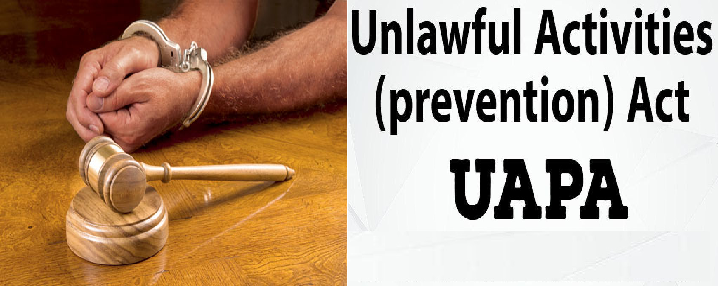
TEXT & CONTEXT: UAPA
Current Affairs for 02nd August,2023
TEXT & CONTEXT: UAPA
The UAPA authorizes the government to ban "unlawful organizations" and "terrorist organizations" and penalizes membership of such organizations investment.
It widens the scope of levying access and benefit sharing with local communities and for further consecration of biological resources.
The definition of "unlawful activities" includes "disclaiming" or "questioning" the territorial integrity of India, and causing "disaffection" against India. Issues have been raised against the vagueness and broadness of the said clause.
"Membership" of unlawful and terrorists organizations is a criminal offence, and in the latter case it can be punished with life imprisonment. However, the act fails to define what "membership" entails.
In 2011, the Supreme Court held that "membership" was limited to cases where an individual engaged in active incitement to violence.
Plus, Section 43D of the Act prohibits courts from granting bail to a person if the case diary or police report (charge sheet) present reasonable grounds to make out an offence.
The argument in favor of the Act is that the state must be given a strong hand to control terrorist and other violent and disruptive activities. However, the law has faced opposition on the grounds that it violates constitutional values of freedom of speech, personal liberty and the right to a fair trial.
• Unlawful Activities Prevention Act, 1967– assigns absolute power to the central government, by way of which if the Centre deems an activity as unlawful then it may, by way of an Official Gazette, declare so.
It has death penalty and life imprisonment as highest punishments.
Under UAPA, both Indian and foreign nationals can be charged.
